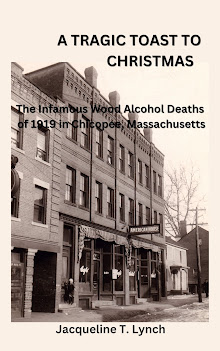
Recently, a previously unknown photo of Anne Sullivan and Hellen Keller was discovered in Massachusetts.
It is the earliest known photo discovered, and how wonderful that we can keep discovering historical subjects anew. Anne Sullivan might well wonder just when she and her student, Helen Keller, became historical subjects. Sometime, perhaps, after they became icons.
Here are views of the Anne Sullivan Memorial in Agawam, Massachusetts. The remarkable young teacher of Helen Keller did not live in Agawam or its village of Feeding Hills very long, nor was her time there particularly happy. The peaceful scene depicted of Annie speaking to Helen with her hands took place far away in Alabama. Annie Sullivan may have been pleased, and perhaps amazed, to be so remembered by the town.
My essay below was published first by Dana Literary Society Online, with the title American Accent. It discusses another aspect of the Anne Sullivan and Helen Keller partnership:
After the Civil War, a strange experiment occurred between two unlikely people which in retrospect, seems to say a lot about regionalism as an inevitable and almost necessary part of the American character. These two were Helen Keller and Annie Sullivan. One aspect to their story is the fascinating irony that it was perhaps the first and most successful union between the North and the South.
In a nation full of Southerners, Iowans, New Englanders and Texans, regionalism is one of our most cherished aspects of self-identity in this country, a trait that non-Americans may not understand or even recognize. Regional prejudices among ourselves have become for the most part benign. It was not always so.
The American Civil War was the last time a serious division occurred, and once joined again after the war, there was much to overcome. For the young New England woman and the Alabama girl, there was also much to overcome. Disability was only part of it.
The deaf and blind Helen Keller, taught to communicate by her teacher, Anne Sullivan, later graduated from Radcliffe, wrote several books and stood as a glorious example of what untapped potential lay in persons with disabilities. All that came later.
Annie Sullivan was born in Feeding Hills, Massachusetts, a small farming village in the western part of the state, in 1866, a year after the war ended. Her parents were Irish immigrants, and indigent. After her mother died, her father, alcoholic, unable and disinclined to care for his children, sent Annie and her brother to the state almshouse in Tewksbury, where her brother died. Adding to her misery, Annie suffered from trachoma as well and had several eye operations before she became Helen’s teacher.
If you had asked young Annie what she was, she would have said, “Irish,” though she was born an American. Most of the inmates of the almshouse were Irish. She would have undoubtedly equated “American” with the well-bred Yankee daughters who snubbed her at the Perkins Institution for the Blind, where she was later fortunate enough to be given schooling as a charity case. She was sent there in 1880, the year Helen was born. Surpassing anyone’s expectations, Annie, who could barely read when she entered, graduated as Valedictorian. Unlike some of the other wealthier pupils, she now had to find a job. Helen Keller of Tuscumbia, Alabama became her job, then a career, and then a crusade.
Helen was the product of an aristocratic Southern family. Unlike Annie, she grew up in a clean and gracious home, yet like Annie her home and her heritage betrayed her nearly to the point of destroying her. Her father served as a Captain in the Confederate army, but the postwar years were a struggle to maintain a social status they had no funds to sustain. Helen’s affliction was a deeper disappointment to them, what must have seemed a final failure to years of hardship and tragedy. If you could have asked Helen what she was, she might have said a Southerner or an Alabamian. But she could not speak at all, and had no idea what she was, or what Annie Sullivan was.

In 19th century American terms, Annie was the scum of earth. She had three terrible strikes against her: she was a product of the poorhouse in a country that prided itself on the Puritan work ethic, where poverty was seen as the result of being shiftless. Secondly, she was Irish in a country where this first mass of foreigners were looked upon as undesirables.
The third strike against her was perhaps the most heinous. Annie Sullivan was nearly blind herself, and handicapped people were regarded as freaks and sources of shame.
Helen shared this last shame of Annie’s. The logic followed that a person physically or mentally disabled was somehow less than human and it was fitting to pack them off to asylums and even chain them to walls sometimes, because they would not miss a normal life, since they would never have one.
Annie Sullivan helped change that. Ironically, their different regional backgrounds, with their implied powerful self identifications and prejudices which normally ensued, might have impeded their success except for the fact of Helen’s being deaf. With no point of reference to cling to, Helen did not think of herself as a Southerner and had no idea Annie was a Northerner, Irish, and her social inferior.
Ironically, their different regional backgrounds, with their implied powerful self identifications and prejudices which normally ensued, might have impeded their success except for the fact of Helen’s being deaf. With no point of reference to cling to, Helen did not think of herself as a Southerner and had no idea Annie was a Northerner, Irish, and her social inferior.
Annie, for her part, was not happy in the South. She had a Northerner’s point of view and prejudice, and found fault with the Keller’s patriarchal household and community. The Kellers were doubtful of, and somewhat repulsed by, the half-blind Yankee (!) teacher and her assertive ways, and though Mrs. Keller came to admire Annie, Captain Keller was deeply affronted by Annie’s lack of Southern sensibilities.
However, once Helen learned to express herself, she and Annie talked with their hands about everything, and for hours, without barriers.
We Americans invariably identify ourselves, and label each other, by the hundreds of accents which exist in this country. An accent different to our own we may find difficult to follow, or even irritating, or it may represent snobbishness to us or stupidity. We may brand the different speaker with a label of our own making.
Helen could not hear and did not know Annie spoke with a different accent, and that the accent set her drastically apart from the Kellers and anyone else in Tuscumbia, where there was nowhere for Annie to hide. Helen could not speak, so she presented to Annie not so much as the daughter of a fine Southern family, but instead, ignorant of her heritage and her place in it, was like a clean slate, unencumbered by any regional prejudice she might have had for Annie or she might have inspired in Annie. They were a team from the start, because that first hurdle that is so comically present for us, even today in the 21st century and was so acute in the 19th century, did not even exist. The very handicap they worked to overcome paved the way for their incredible partnership. In time, Helen learned about her family and her Southern heritage, and found pride in her roots, as well as learning to appreciate Annie’s.
They were two of the finest Americans ever born, and were born in separate halves of a nation that had so recently been so violently divided. Despite this, throughout their lives they were able to maintain regional self identifications, and ultimately became representatives of progressive American education on the world stage.
We no longer need to kill wholesale our countrymen over policies we do not like and intolerance with what we do not understand, injustice we perceive, or heritage which we do not share. There are still many countries in the world where that is not possible, where citizens of the same nation cannot interact unfettered by prejudice, like those two young American ladies engrossed in the topics of the day in an Alabama garden, without so much as an earful of twang or drawl.
Friday, May 2, 2008
Anne Sullivan Memorial
Posted by
Jacqueline T. Lynch
at
7:32 AM
![]()
Labels: 19th century, 21st Century, education, Massachusetts, monuments, New England
Subscribe to:
Post Comments (Atom)









8 comments:
I was familiar with the 'Helen Keller' story but your account fills in many of the blanks for me and gives it colour and depth. Thank you.
Peter-S in ('old') England
Chairman of Sir William Turner's Almshouses in north Yorkshire.
www.communigate.co.uk/ne/swthospital
Thank you, Peter of "old" England. The Sullivan-Keller story is intriguing on many levels. They were remarkable people. Your position as Chairman of Sir William Turner's Almshouses must lend interesting insight to the stories of the indigent of the 19th century.
Dear Jacqueline, Brilliantly writen. I had never thought beyond the teaching of sign language by Annie Sullivan. Thank you for passing on this great insight into two much loved & respected individual lives. Well done.
Love your work, Yvonne Johns, Australia XX
Well, my friend, fancy meeting you here. Thanks so much for your comments, Yvonne. Judging by the above commenters from Great Britain and Australia, we can see that Anne Sullivan and Helen Keller were not just citizens of the US, but citizens of the world.
Jacqueline,
Superb piece. Really enjoyed it.
Came across it by chance looking for info whilst helping my daughter with a project about Annie and Helen.
I learned a lot and I'm sure my daughter did too.
Citizens of the world?
Indeed, we are in Israel !!
Thank you,
Michael [and Jasmine] Hide,
Yad Hanna,
Israel.
Michael and Jasmine, thank you so much for stopping by and for your kind comments. I am deeply impressed by Anne Sullivan's and Helen Keller's reputation on the world stage, and am so pleased to hear from people around the world who admire them.
hi..i am one of anne sullivan's fans...i'm very interest to her
Welcome Azimah, and thank you for commenting. I agree Anne Sullivan is someone worthy to be admired.
Post a Comment